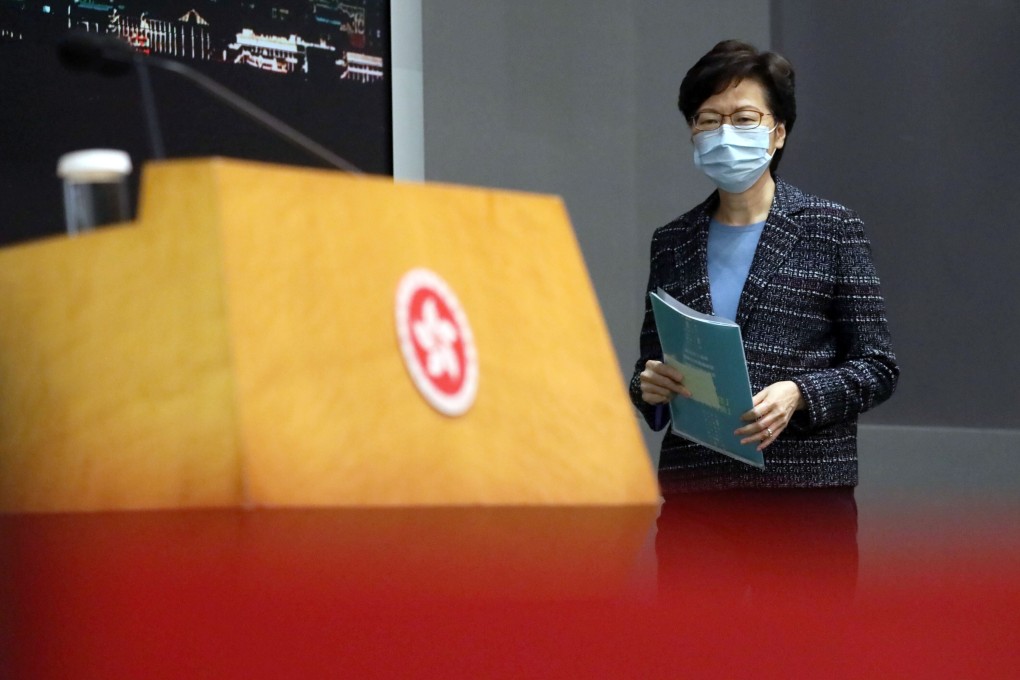Advertisement
Coronavirus: Hong Kong government extends restrictions in city for another two weeks, keeping bars, pubs and other businesses closed until May 7
- Temporary ban had been due to expire on April 23
- City leader Carrie Lam says now ‘not the time to be complacent’
Reading Time:4 minutes
Why you can trust SCMP

The temporary ban on some businesses opening in Hong Kong has been extended for two more weeks, but certain restrictions on the city’s restaurants were being relaxed, officials said on Tuesday.
Bars, pubs, beauty salons, massage parlours, and karaoke bars are among the 11 premises that must now remain shut until May 7, at the earliest.
Chief Executive Carrie Lam Cheng Yuet-ngor said that, even though Hong Kong recorded no new infections on Monday, the regulations needed to remain in place to make sure the city kept up its battle against the coronavirus pandemic.
Advertisement
“This is not the time to be complacent. If we relax, the good work that we have done will be in vain,” she said. “That’s why the bans, that would have expired on April 23, will now be extended by two weeks.”
The relaxing of restrictions for restaurants means establishments can have more customers, as the ban on having more than 50 per cent of the normal seating capacity has been scrapped.
Advertisement
Advertisement
Select Voice
Choose your listening speed
Get through articles 2x faster
1.25x
250 WPM
Slow
Average
Fast
1.25x